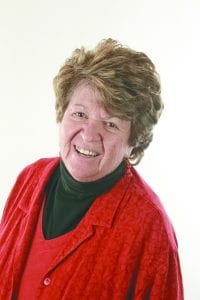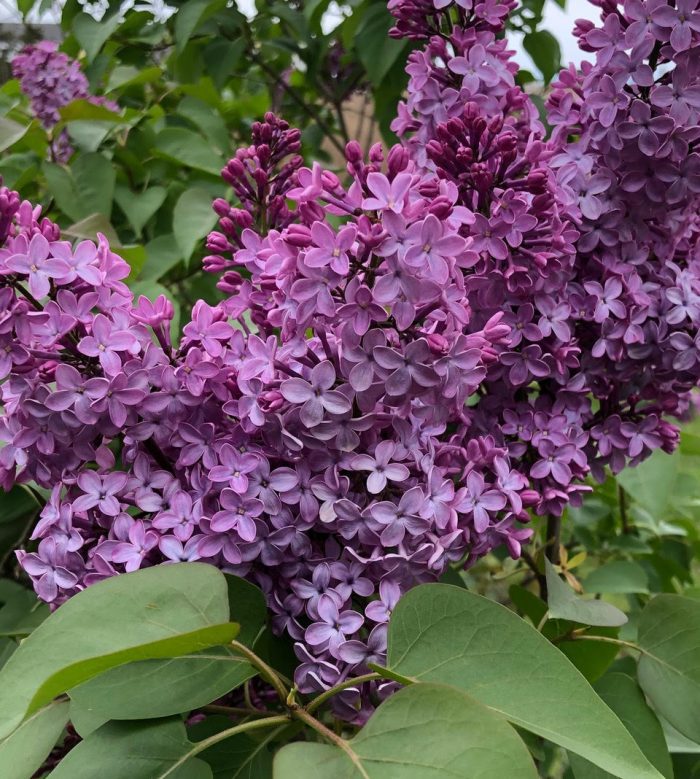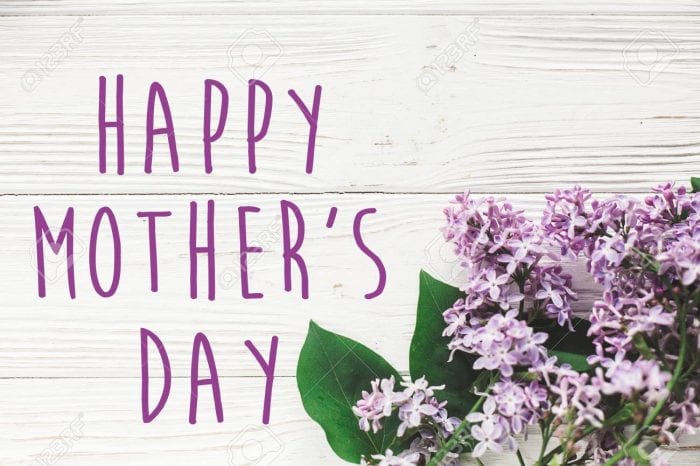By Leah S. Dunaief

Publisher
When lilacs bloom, I think of my mother. That’s not only because they bloom around Mother’s Day, although that is part of the story. My mother loved lilacs, their color, their remarkable shape of many tiny flowers making one larger blossom, their incomparable smell.
My mother was born in Russia, came to New York with her family when she was four and lived in the house with her father, step-mother, two brothers, three sisters and one unmarried aunt in Corona, Queens until she married. And as she told me countless times, always smiling at the memory, the backyard was filled with lilacs.
After I moved away, I sent her armloads of lilacs on Mother’s Day. Each year, she would tell me I shouldn’t have, taking deep breaths to let me know how she loved their perfume.
Forty-one years ago, she died two days before Mother’s Day, surrounded in the hospital room by lilacs.
I wish you had known my mother. She was, to borrow from The Reader’s Digest, the most unforgettable character I have ever met. My father, who was no slouch himself, said she had enormous courage. She would go to court, representing whichever member of the family might have legal woes in connection with their businesses, and patiently explain to the judge what the problem was. She always won.
She would have been a successful lawyer, had she been allowed to finish her studies. But when her father had a stroke in his 40s, she and her older brother were removed from school and sent out to work to support the family. She seemed not to know that she was not a lawyer as she argued her case.
Without a doubt, she was the matriarch and head of the extended family. Did I mention, she was incredibly bright…about most things? Not necessarily about me, however, As you might imagine, she had a strong personality and was accustomed to being in charge. I, on the other hand, disliked always being directed. My poor dad was habitually caught in the middle.
My father would remind me how much my mother loved me and that she was looking for what was best for me. I don’t believe that line of reasoning ever won me over, but I will say that I learned to love, and love deeply, from my mother and my father.
Is love learned? If so, I felt how much my brother, my sister and I were loved and how my parents, if called upon, would sacrifice their welfare for us in an instant. I have tried to pass along that depth of feeling to my children.
My parents did modify their lives after my sister was born. Two years younger than I, she was diagnosed with Down syndrome, a genetic disorder that is caused by an extra copy of chromosome 21. Mothers 35 and older are more prone to giving birth to children with Down’s, and my mother was 36 when my sister, Maxine, arrived.
It was my parents’ goal to help Maxine live as normal and complete a life as they were able to provide for my older brother and me. Some relatives urged them to put my sister “away” in a home for children with disabilities. My parents never considered that, instead protecting her with abiding love and care.
Both my parents accepted the challenge of raising my sister, but the larger share of that care inevitably fell to my mother. It was not common to see a child on the street with a disability of any sort in the 1940s, when my sister was born. Some people feared differences, others just stared.
There was a social price to be paid. My parents willingly paid the social price, devoting their free time and resources to her care, happiness and well-being, making sure that my sister was properly looked after. She played the piano, loved watching baseball games in Central Park with my dad and me, and returned our love in equal measure. With infinite patience, my mother taught Maxine eventually to read and do arithmetic on a second-grade level.
My mother was a star.








